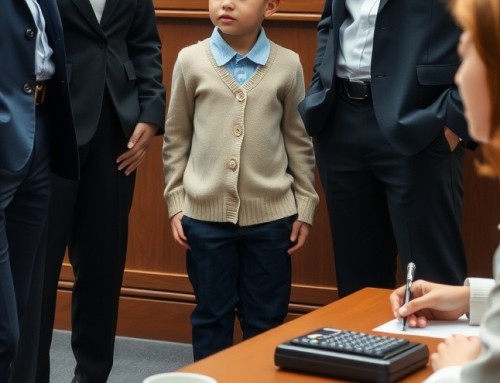The Impact of Social Media on Divorce Proceedings in Idaho
In today’s digital world, social media sites play a major role in our daily lives. Facebook, Instagram, X (formerly Twitter), and TikTok allow you to share personal updates, communicate with family and friends, and even document major life events.
However, some people don’t realize that social media posts can have serious legal consequences. In Idaho, social media activity can impact issues such as asset division, child custody, and spousal support.
Understanding the implications of social media during divorce is important for anyone going through a divorce. In this article, we will explore how social media can affect divorce proceedings. We will also provide essential tips for protecting your case.
The Impact of Social Media Platforms on Idaho Divorce Cases
Social media posts are increasingly being used as evidence in divorces. According to one survey, Facebook plays a role in 1 in 5 divorce cases in the US.
Let’s consider how social media use could affect your divorce.
Evidence in court
In Idaho, social media and messages are sometimes used as evidence in court.
Courts may consider social media activity when reviewing things such as:
- Infidelity: Posts with a new romantic partner could suggest that a spouse was unfaithful. This can influence fault-based divorces.
- Financial disputes: A spouse may claim financial hardship but then post about expensive purchases or vacations. This could impact property division and alimony decisions.
- Child custody matters: Social media can be used in a child custody case to challenge a person’s fitness as a parent. Things such as reckless behavior, substance abuse, or neglect could be shown through social media.
Impact on child custody decisions
In Idaho, courts prioritize the best interests of the child when determining custody and visitation. If a parent’s social media activity suggests irresponsible behavior, it can be used against that party in the dispute.
Even seemingly harmless posts can be misconstrued and negatively impact a custody case. This could include complaints about parenting duties or negative comments about the other parent.
Division of assets
Idaho follows community property laws. This means that marital assets are generally divided equally between spouses.
Social media accounts can provide insight into things such as:
- Hidden assets
- Undisclosed income
- Financial deception
If one spouse claims he or she can’t afford spousal support but is posting luxury purchases, this could lead to adjustments in the divorce settlement.
Violation of court orders
Once a divorce is underway, court orders regarding communication, restraining orders, or financial obligations must be followed. Social media can reveal violations of these orders.
For example, let’s say one spouse is ordered not to speak negatively about the other in front of the children but then posts defamatory comments on social media. This can lead to legal consequences such as modifications to custody or visitation rights.
Another example is if a spouse is ordered not to introduce a new partner to the children before a certain period, but his or her social media shows pictures of the new partner with the kids, this could be used as evidence of a violation.
Navigating Social Media While Going Through a Divorce in Idaho
Consider the following suggestions to ensure your social media accounts do not negatively impact your divorce:
- Limit social media use: The safest thing you can do is to stop using social media platforms altogether during your divorce. The less you pose, the less risk there is of something being misinterpreted or used against you.
- Adjust your privacy settings: Set your privacy settings to the highest level. However, remember that this does not guarantee full protection. Even private messages can be screenshotted and used as evidence. Assume that anything posted online could be seen by your ex-spouse.
- Monitor your friends and family’s activity: Even if you are careful about what you post, friends and family can unintentionally post something that harms your case. Ask loved ones to avoid tagging you in posts or sharing details about your divorce.
- Don’t accept new friend requests: Be cautious not to accept new friend requests from people you don’t know personally. The other party could create a fake social media profile in an attempt to access your posts.
- Think before you post: Before posting on social media sites, ask yourself: Could this post be misinterpreted in a negative way? Am I sharing information that could be used against me? Would I be comfortable with a judge seeing this?
- Be cautious with direct messages and emails: Private messages and emails can be used as evidence. Avoid discussing sensitive matters through digital communication, and assume that anything written could be presented in court.
- Monitor your children’s social media use: If your children are old enough to have social media accounts, be aware that their activity could impact your divorce case. Your child’s posts about parental behavior or household dynamics can affect custody decisions.
- Avoid posting about your divorce online: While it can be tempting to vent about your ex online, doing so can backfire. Courts may view such posts as an attempt to influence proceedings or an indication of instability.
- Be cautious of “checking in” location sharing: Many social media sites allow users to share their location. This can unintentionally provide evidence of activities that contradict statements made in court.
What If Your Spouse Posts Something on Social Media That Works in Your Favor?
If your spouse posts something on social media that could positively impact your divorce case, it is essential to handle the situation strategically.
Below, we outline the steps you can take to leverage social media evidence legally.
Preserve the evidence immediately
One of the most crucial steps is to preserve the post before your spouse can delete it.
Social media posts can disappear quickly, so take these steps immediately:
- Screenshot the post: Capture the entire post. Include the timestamp, username, and any relevant comments.
- Record context: If the posts are videos, consider screen-recording to ensure you have full context.
- Save the URL: If possible, copy and paste the URL of the post.
Consult your attorney before taking action
Before presenting the post as evidence, discuss it with your attorney.
Your lawyer will help you to:
- Determine its admissibility in court: There are rules on submitting digital evidence. Improperly obtained material could be excluded.
- Ensure ethical collection of evidence: Illegally accessing private accounts or using deceptive means to obtain information could harm your divorce case.
- Develop a strategy: Your attorney can advise on how to introduce the evidence effectively without it seeming retaliatory or manipulative.
Submit the evidence properly
If the post is deemed useful for your case, your attorney will ensure it is submitted correctly.
Courts may require:
- Clear and authentic screenshots
- Data proving the source and date
- Verification from a forensic expert
Correctly submitting social media evidence strengthens your credibility and prevents challenges from the opposing party.
Seek Legal Guidance for Social Media and Divorce in Idaho
Understanding how social media posts can affect the divorce process can be challenging, but you don’t have to do it alone. At Brown Family Law, our experienced Idaho family law lawyers can help you identify the potential risks of social media during your divorce.
Are you going through a divorce in Idaho and have concerns about how social media may impact your case? Whether you need help understanding the legal implications of your social media posts or developing a strategy to protect your best interests, we are here to assist you.
Contact us today to schedule a consultation. Call us at 208-987-7005 or complete the contact form, and someone will reach out to you shortly.








